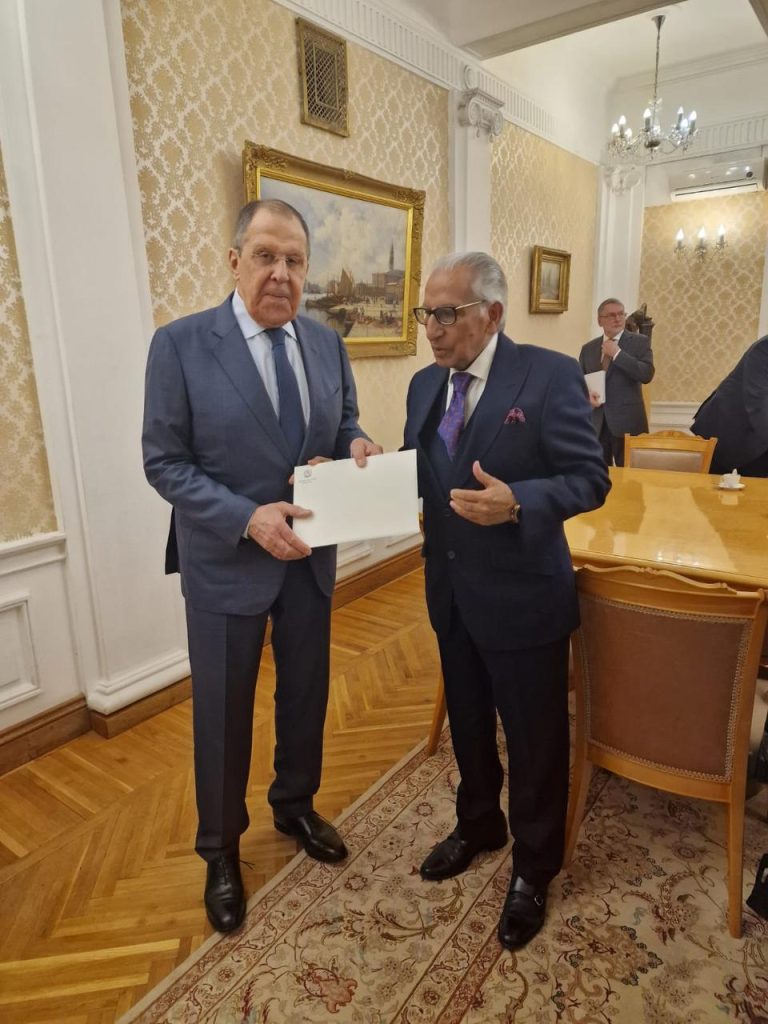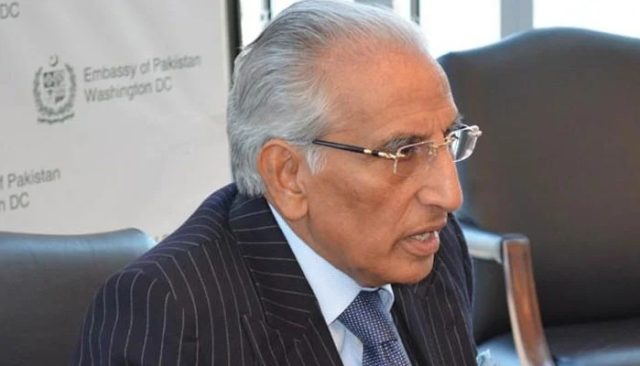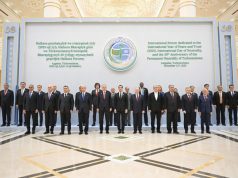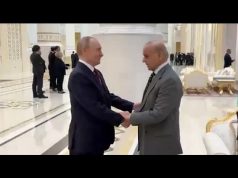MOSCOW, Wednesday, June 4, 2025 (WNP): Special Assistant to the Prime Minister (SAPM) and Minister of State Syed Tariq Fatemi concluded a three-day official visit to the Russian Federation on Wednesday, marking a significant step in strengthening Pakistan-Russia bilateral relations through robust diplomatic engagement.
Fatemi, who was in Moscow from June 2 to 4, held a series of high-level meetings with senior Russian officials, including Foreign Minister Sergey Lavrov, Minister of Energy and Co-Chair of the Pakistan-Russia Inter-Governmental Commission (IGC) Sergey Tsivilev, and Yury Ushakov, Senior Aide to President Vladimir Putin on Foreign Policy.
During talks with Foreign Minister Lavrov, Fatemi reiterated the Pakistani leadership’s commitment to deepening cooperation with Russia across key sectors including energy, trade, regional connectivity, and cybersecurity. He conveyed Prime Minister Muhammad Shehbaz Sharif’s warm greetings and also hand-delivered a personal letter from the Prime Minister to President Putin.
Fatemi briefed Lavrov on the evolving security dynamics in South Asia, expressing concern over India’s recent aggressive posture—particularly New Delhi’s unilateral suspension of the Indus Waters Treaty. He warned of the treaty’s disruption as a dangerous precedent that threatens regional peace and water security.
Lavrov acknowledged the steady progress in Pakistan-Russia relations and voiced satisfaction with outcomes from the 9th Pakistan-Russia IGC held in Moscow last year. He welcomed Pakistan’s role as an emerging regional transit hub and emphasized Russia’s readiness to strengthen ties further—particularly through collaboration under the Shanghai Cooperation Organization (SCO), including joint efforts in counter-terrorism.
In his meeting with Minister Tsivilev, discussions focused on the expansion of energy cooperation and investment prospects, including the development of a new steel mill project in Pakistan. Tsivilev praised Islamabad’s growing regional importance and expressed optimism for the upcoming IGC session scheduled to take place in Pakistan later this year.
Fatemi’s separate meeting with Yury Ushakov centered on regional security concerns. He shared Pakistan’s perspective on India’s destabilizing actions and reiterated Islamabad’s preference for peace through dialogue and adherence to international agreements.
Outside official engagements, Fatemi appeared in interviews on prominent Russian television networks, where he spoke on the deepening Pakistan-Russia partnership and conveyed Pakistan’s position on regional tensions. He also addressed the prestigious Valdai Discussion Club, delivering a keynote speech on South Asia’s shifting geopolitical landscape and the growing strategic convergence between Islamabad and Moscow.
Fatemi held in-depth conversations with Russian academics and media representatives, highlighting Pakistan’s foreign policy realignment towards multi-vector diplomacy and underscoring Russia’s vital role in this strategic recalibration.
The visit has been widely hailed as a diplomatic success, with analysts noting a clear deepening of mutual trust and cooperation. Areas such as energy collaboration, trade, infrastructure development, and regional security have emerged as key pillars of this evolving partnership.
As Islamabad looks to diversify its foreign policy options in an increasingly multipolar world, Fatemi’s engagements in Moscow reflect Pakistan’s intent to foster a long-term strategic alignment with Russia based on shared economic and geopolitical interests.




